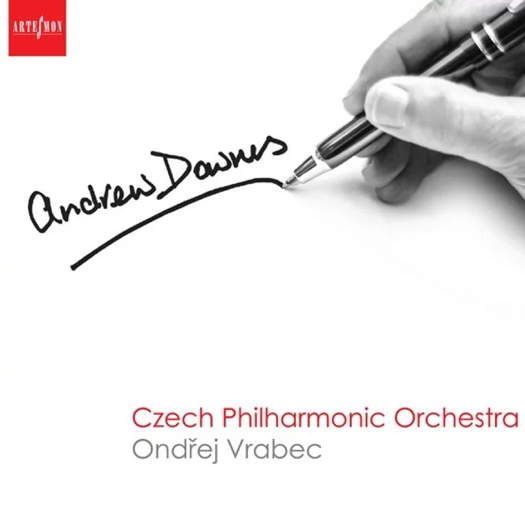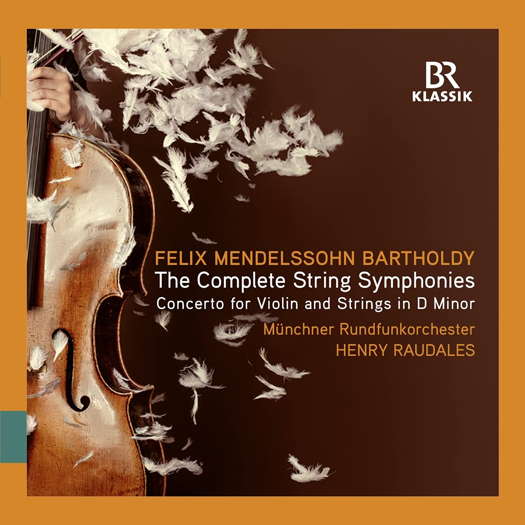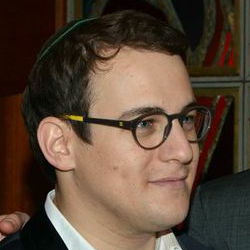 SPONSORED: CD Spotlight. On Buoyant Form - Orchestral music by Andrew Downes, heard by Roderic Dunnett.
SPONSORED: CD Spotlight. On Buoyant Form - Orchestral music by Andrew Downes, heard by Roderic Dunnett.
All sponsored features >>

Teenage Years
Mendelssohn's String Symphonies, recommended by GERALD FENECH
'Performances are energetic and inspiring throughout, with a touch of crispness consistently at the centre of things.'
Felix Mendelssohn was born in Hamburg in 1809, son of the banker Abraham Mendelssohn. In 1812 the family moved to Berlin after the French occupation of Hamburg, and it was there that the young composer received his education in music as a pupil of Carl Zelter, for whom the boy seemed a second Mozart. As a child he was delectable and precocious, profiting from the wide cultural interests of his parents and relations, and showing great pianistic ability added to a voracious appetite for composition. In 1816 he was baptized a Christian, a step his father took six years later. Abraham Mendelssohn always sought the best advice when it came to his son's choice of career and one eminent personality who was consulted in this respect was none other than Luigi Cherubini, director of the Paris Conservatoire. On the latter's advice the father agreed to his son becoming a professional musician.
While in Paris Felix met many distinguished composers and performers of the day. Back in Berlin his career started taking shape with many compositions and activity as a pianist and conductor. To further his education he embarked on a period of travel throughout Europe that took him as far north as Scotland and as far south as Naples - journeys that served him as sources of inspiration in his endeavours to write music that would last the ages.
In 1835 Mendelssohn was appointed conductor of the Leipzig Gewandhaus Orchestra, and it was in this city that he continued to revive earlier music masterpieces that were practically forgotten. Indeed, we owe the discovery of Bach's St Matthew Passion, a work that had not been performed for over a century, to the indefatigable efforts of Mendelssohn. In 1843 he founded the Conservatory, his last great gift to the city he so loved. Mendelssohn died in Leipzig on 4 November 1847, six months after the death of his beloved sister Fanny.
The composer wrote his twelve String Symphonies between 1821 and 1823. The first seven were all composed in 1821, with the eighth a year later and the last four in 1823. These works were written when Mendelssohn was a pupil of Zelter and reflect the style of the teacher, and the composer's admiration of earlier classical models and an increasing interest in the contrapuntal practices of Bach and Handel.
Listen — Mendelssohn: Allegro (String Symphony No 2 in D)
(CD1 track 4, 0:00-0:52) ℗ 2021 BRmedia Service GmbH :
Part of the fascination of these pieces lies in the fact that they were composed when Mendelssohn was in his teenage years - between twelve and fourteen to be exact - and amazingly they sound as if they were written by a more mature composer.
Listen — Mendelssohn: Adagio (String Symphony No 10 in B minor)
(CD2 track 9, 0:00-0:36) ℗ 2021 BRmedia Service GmbH :
These symphonies are in every sense of the word magnificent examples of Mendelssohn's genius. Full of light but sparkling melodies, innovative orchestration and vibrant dynamics, they never fail to instill happiness and a strong joie de vivre in listeners young and old. Indeed, their charm and sweetness have entranced concert-goers for decades. Performances are energetic and inspiring throughout, with a touch of crispness consistently at the centre of things.
Listen — Mendelssohn: Schweizerlied (String Symphony No 11 in F)
(CD3 track 2, 0:00-0:45) ℗ 2021 BRmedia Service GmbH :
A highly enjoyable set, further enhanced by a recording of the Concerto for Violin and Strings in D minor, a veritable rarity composed when Mendelssohn was just thirteen for his friend Edward Rietz. It was never performed in the composer's lifetime, and was altogether forgotten. Yehudi Menuhin discovered the piece in the middle of the twentieth century, and we can now enjoy this delectable little gem for all its simple beauty and delightful conception.
Listen — Mendelssohn: Allegro molto (Concerto for Violin and Strings in D minor)
(CD3 track 10, 7:24-8:15) ℗ 2021 BRmedia Service GmbH :
Highly recommended.
Copyright © 6 September 2021
Gerald Fenech,
Gzira, Malta

CD INFORMATION - MENDELSSOHN: THE COMPLETE STRING SYMPHONIES



